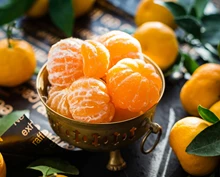
Due to a gap between demand and supply, around 60% of the edible oils consumed in the country are met through imports. In this accord, palm oil constitutes around 54% of the total edible oil imported mainly from Indonesia and Malaysia, while Soya bean oil constitutes around 25% and is imported from Argentina & Brazil and Sunflower oil constitutes 19% and is imported mainly from Ukraine.
In medium-term contract production of edible oils is being given very high priority which is reflected in the highest production of Mustard seeds from 91 LMT to 101 LMT this year.
Palm oil imports increase by 31.50% in August
In the case of Palm Oil (crude and refined), the imported quantity for August 2021 was 7.43 LMT as against 5.65 LMT in July 2021. The percent increase in August is 31.50% from the previous month which is largely due to the opening up of the economy.
Taking year-on-year comparison for the month of August it can be seen that the total palm oil imports (crude and refined) for 2019, 2020, and 2021 were 8.81 LMT, 7.48 LMT, and 7.43 LMT respectively which is still below the usual demand in the economy.
A close watch is kept on day to day basis on Production, Imports, and prices of Edible oils and so that appropriate measures can be taken to keep a check on the prices of edible oil.
An Inter-Ministerial Committee on Agri-Commodities chaired by Secretary (Food) is also in place to closely monitor the prices and availability of agricultural commodities including edible oil keeping in view the interest of the farmer, industry, and consumers.
The committee reviews the price situation on weekly basis, considers relevant measures in relation to edible oils and other food items depending on the domestic production, demand, domestic and international prices, and international trade volumes.
Timely interventions by the Government have been made in the last year as and when needed so as to ensure that the prices remain stable and the interest of consumers is protected within the limitations of international fluctuations.
Source: PIB











